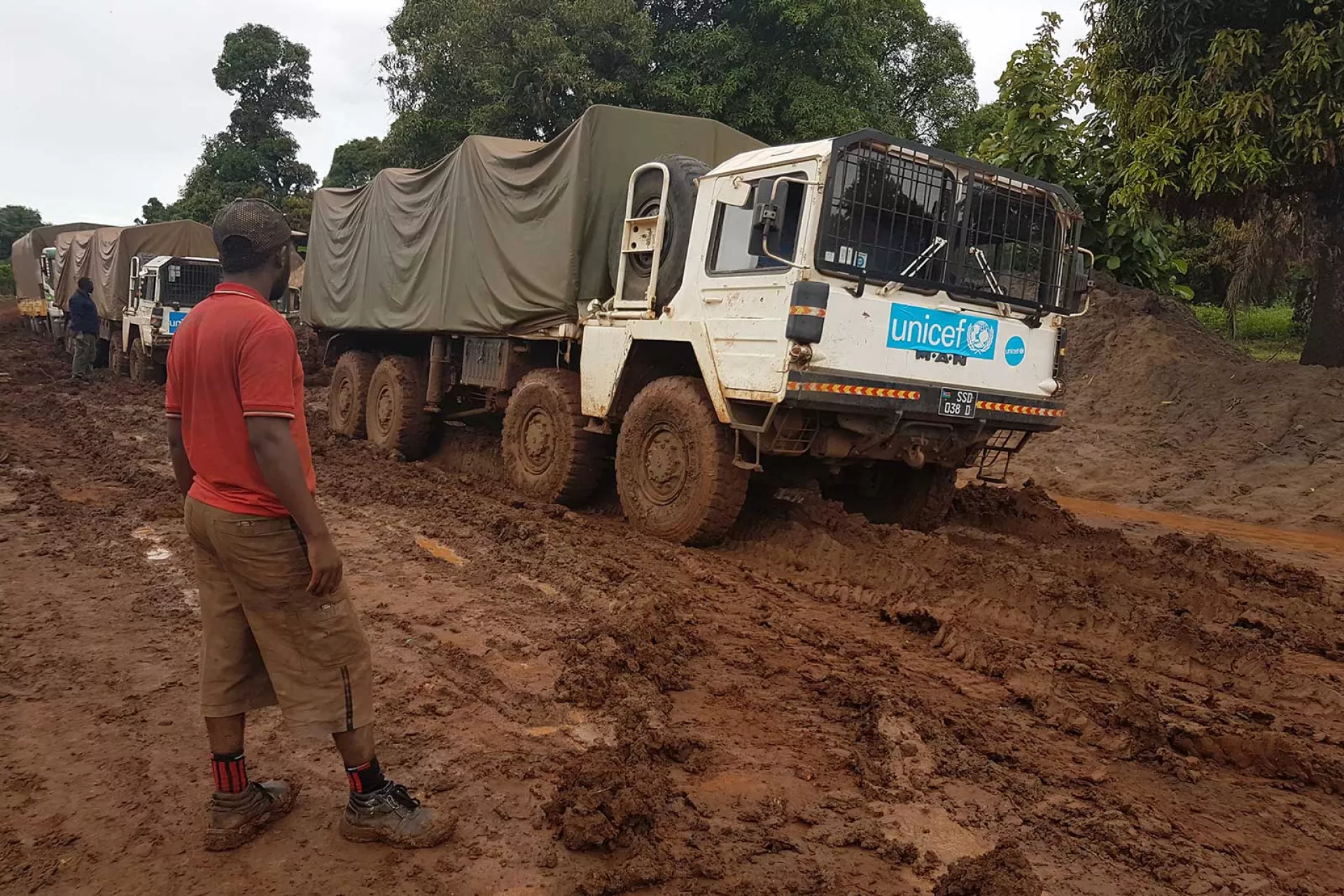Strategic prepositioning of supplies in South Sudan
Through strategic prepositioning in South Sudan during the dry season, an estimated average cost-avoidance of $5 million per year is achieved.

Since independence in 2011, South Sudan has been affected by internal conflict. This has resulted in a highly volatile and complex environment, making it difficult to reach children. The country has only 192 kilometres of paved roads and 4 asphalt airstrips. Although transportation is available along rivers, boats are old and unreliable, and the security situation means timing is unpredictable. Road transport is undertaken in convoy for security reasons, and, for approximately six months of the year, up to 60 per cent of the country is inaccessible due to heavy rains.
Against this background, a system of dry season prepositioning (DSP) was designed. Critical supplies such as medicines, education materials and therapeutic food are moved across the country during the dry season and placed in strategic hubs. This ensures that the supplies remain available during the rainy season for both emergency response and regular programming. In activating the DSP, the South Sudan Country Office ensures that the population continues to have access to critical supplies.
Through the implementation of DSP from 2017 to 2019, there was no break in the pipeline of critical supplies, an increase from 82 to 98 per cent in the use of road transport for supplies distribution, a reduction of CO2 emissions by an average of 800 tonnes per year and an estimated average cost-avoidance of $5 million per annum.




